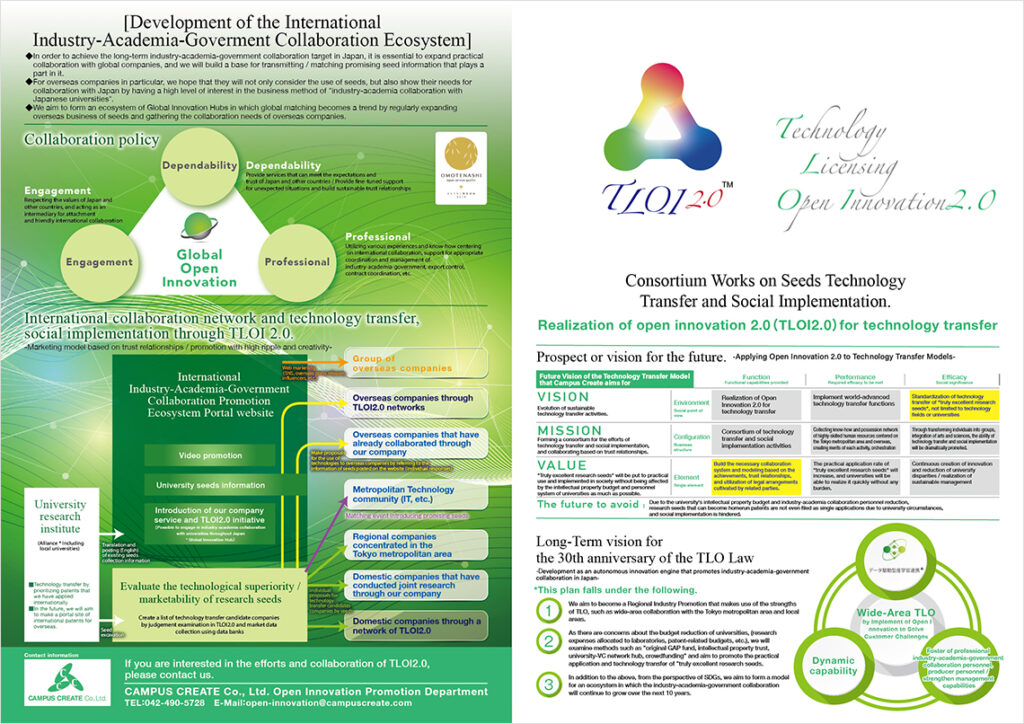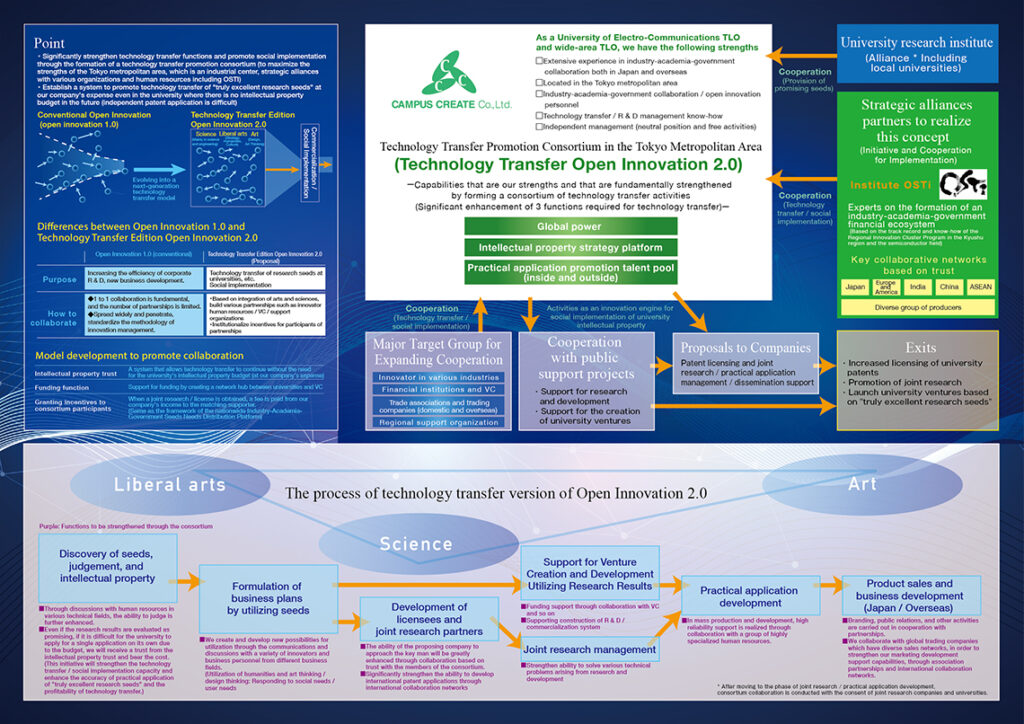TLOI2.0
What is "TLOI 2.0"?
In Japan, the Ministry of Economy, Trade and Industry and the Ministry of Education, Culture, Sports, Science and Technology, took the initiative and had a history of the establishment of industry-academia collaboration. The research results of Japanese universities were patented, as mediate institution to promote technology transfer to companies, TLO (Technology Licensing Organization) was established throughout the country. TLO were more than 40 organizations at one time, roughly divided into 2 types, university internal organizations (internal TLO), university external organizations (external TLO). Human resources in a type of job called industry-academia-government collaboration coordinators work in TLO organization.
Our company is TLO, which is approved by the Ministry of Economy, Trade and Industry as National University Corporation the University of Electro-Communications TLO.
On the other hand, as an independent external TLO without university capital, We collaborate with various universities other than National University Corporation the University of Electro-Communications, and conduct technology transfer activities.
It is said that the TLO was originally introduced based on the successful results of industry-academia-government collaboration for about 20 years, represented by the overseas OTL (Office of Technology Licenses). But the gap between Japan’s industry-academia-government collaboration results and overseas ones is large. We consider that the technology transfer marketing model will need to evolve even further, given the fear that the IP(intellectual property)budget and the number of industry-academia collaboration personnel will shrink.
Therefore, our company is working to model TLOI 2.0 (Technology Licensing Open Innovation 2.0) as its own technology transfer model. TLOI 2.0 is a concept that applies the concept of open innovation 2.0 (* 1) to the technology transfer model. It focuses on “truly excellent research seeds”, for devising a judgement, utilization plan, and marketing activities, social implementation activities, the purpose is to form a consortium body by various collaborative bodies including those other than TLO, and work together by fusing networks and strengths based on each trust relationship.In order to achieve this goal, we will continue to work toward the creation of a framework for the formation of a consortium, and the creation of an ecosystem for the promotion of international industry-academia-government collaboration.


3 points in TLOI 2.0
1. Global expansion force
In the overseas expansion of university seeds, we will also collaborate and conduct with external organizations, including overseas.
In particular, we will make proposal activities that collaborate with organizations and human resources, which have abundant networks with overseas companies, research institutions, and will improve deployment capabilities by collaborating with local organizations for collecting of overseas market information, user needs information.
2. Intellectual Property Strategy Platform
We will collaborate and conduct with experts in various technical fields for the judgement of university seeds and technology transfer activities.
We will also conduct appropriate evaluations and plan of social activities for advanced and original technology seeds.
3. Pool of practical application promotion talents (inside and outside)
We will conduct exit strategy support for commercialization and spread of seeds in collaboration with producer personnel who have network and know-how in various fields.
The following pages show the initiatives by the twentieth anniversary of establishment our company and long-term vision toward the thirtieth anniversary of the TLO law, including initiatives to realize a concept of achieve the TLOI2.0.
/twenty-memorial-symposium/
- 1. Open innovation 2.0 is a concept of open innovation characterized by the fact that various stakeholders such as users and citizens collaborate to solve social issues in contrast to open innovation 1.0, which is based on one-to-one collaboration. The trend is shifting from overseas.
Reference : Open Innovation White Paper second Edition of NEDO
https://www.nedo.go.jp/library/open_innovation_hakusyo.html
